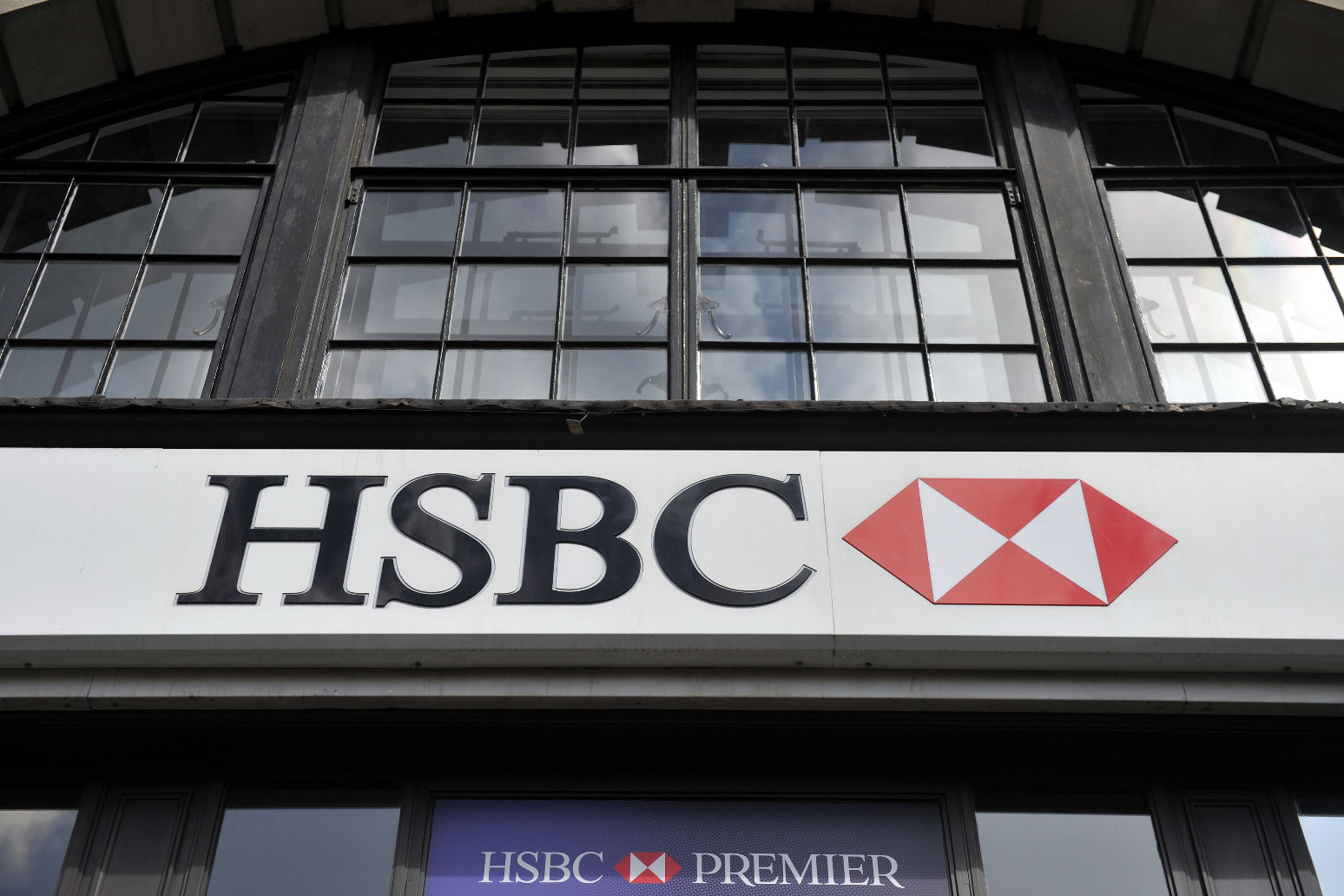
HSBC posts earnings leap and boosts shareholder payouts
The banking giant unveiled a better-than-expected jump of more than 90% in pre-tax profits
HSBC has reported a near-doubling of profits at the end of 2022 and revealed plans for a special shareholder payout on top of its highest dividend for four years as it defends itself in the face of break-up calls from its biggest investor.
The banking giant unveiled a better-than-expected jump of more than 90% in pre-tax profits to 5.2 billion US dollars (£4.3 billion) for the final three months of the year.
Overall for 2022, it posted a slight drop in pre-tax profits, down by 7.3% to 17.5 billion dollars (£14.6 billion).
The group announced total dividends of 32 cents a share for 2022 – the highest level since 2018 – and looked to further appease shareholders by saying it will hand out a special dividend after the sale of its business in Canada later this year.
It comes as HSBC has been under pressure from its largest shareholder Ping An, a Chinese insurance group, which has been leading a campaign to push for a split of HSBC’s Asian and western banking businesses to boost profits.
Noel Quinn, group chief executive, said the results marked “another good year for HSBC”.
He said: “Ourselves and Ping An shared a common objective over the past three years, and that is to improve the performance of the business.
“I think the results we announced today evidence an improvement in the business. We have fundamentally transformed the profitability of what were loss-making, or near-loss-making, businesses in the US and Europe.
“We are still ambitious to improve performance even more, but I think we have shown over the last three years we have delivered on our strategic performances.”
He stressed that it would be “normal practice” to meet with Ping An over the next few weeks, “as we would with all major shareholders” following its financial results.
HSBC reported revenues up 4% to 51.7 billion US dollars (£43 billion), driven in part by strong growth in net interest income across all of the group’s global businesses.
The group added it expects to record a net interest income of at least 36 billion US dollars (£30 billion) for the coming year, based on the current market consensus for global central bank rates.
But it set aside another 1.4 billion US dollars (£1.2 billion) for expected bad debts in the fourth quarter of last year, flagging its exposure to commercial real estate in mainland China, as well as businesses in the UK.
And looking ahead, Mr Quinn admitted that there are “marginal to small” signs of financial distress in the group’s lending book, despite overall “resilience” across its customers.
He said: “I wouldn’t say we have no signs of stress in the UK – we have seen marginal to small signs of stress in our book at the moment.
“There is certainly a challenging year ahead, and a number of people remortgaging onto higher rates.
“But I’m pleased that the yield curve has come down because of the positive action the Government took at the end of last year, and we are passing on that reduction as quickly as possible in terms of the cost of borrowing for our mortgages.”
He stressed that HSBC recently introduced its first five-year fixed-rate mortgage at under 4%, for customers remortgaging, since the mini-budget, which led to a rise in the price of many mortgage products.
“We think at that sub-4% level, the vast majority of our client base would be able to manage the remortgaging.
“But for anyone in financial difficulty, we have got resources allocated to make sure that we can support them.”
He added: “But I am more positive on the UK mortgage market today than I would have been five to six months ago.”
Its annual report published alongside the results showed that the group cut its bonus pool by 4% to 3.4 billion US dollars (£2.8 billion) for 2022.
However, chief executive Noel Quinn saw his total pay package swell to 5.6 million US dollars (£4.7 million) from 4.9 million US dollars (£4.1 million) in 2021 as he picked up a 2.2 million US dollar (£1.8 million) annual bonus.
The group said it hiked fixed pay by 5.5% on average in 2023, following a 3.6% rise in 2022, taking into account the “impact of inflation in each country where we operate”.
It stressed that increases were targeted towards more junior and middle management workers, who see fixed pay represent a larger proportion of their overall earnings.
Most senior leaders and executive directors have not been given fixed pay rises this year, it added.
HSBC added that the UK’s plans to scrap the bonus cap for bankers “will eventually allow us to place more emphasis on variable pay in the overall package”.
“We will keep our approach under review and consult with shareholders on any potential changes to our overall remuneration framework for executive directors,” it added.
HSBC revealed its UK gender pay gap widened last year, with the median female employee earning 48.8% less than the median male employee, as of April 5 2022.
This was a 2.1 percentage point increase from the 46.7% gender pay gap reported last year.
HSBC said the UK gender pay gap reflects the make-up of the business, with fewer women than men in senior, higher-paid roles and more women than men in junior, lower-paid roles.
Published: by Radio NewsHub